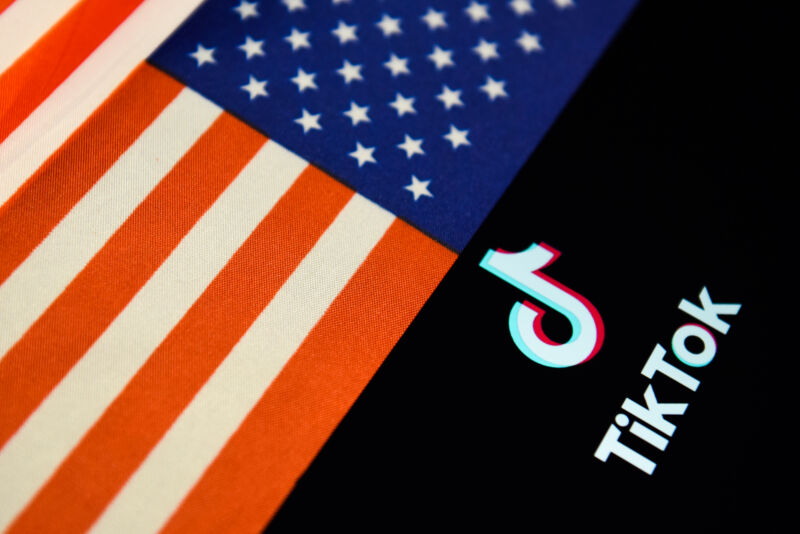
TikTok and its parent company, ByteDance, filed suit today in federal court arguing that President Donald Trump’s efforts to ban the app or force a sale to a US firm are not grounded in facts but instead are part of an “anti-China political campaign.”
An executive order curtailing TikTok’s US operations “is not rooted in bona fide national security concerns,” TikTok argues in its complaint (PDF). “Independent national security and information security experts have criticized the political nature of this executive order, and expressed doubt as to whether its stated national security objective is genuine,” the company adds.
TikTok’s complaint seeks to prevent the president and the Department of Commerce from “impermissively banning” the app, alleging that the authority under which the order was enacted (the International Emergency Economic Powers Act, or IEEPA) was a “gross misappropriation” and “a pretext for furthering the President’s broader campaign of anti-China rhetoric in the run-up to the US election.”
The complaint goes on:
Past presidents have used this power responsibly to protect the country from genuine threats from abroad … Through this executive order, however, President Trump seeks to use IEEPA against TikTok Inc., a US company—headquartered in Los Angeles with hundreds of employees the United States—to destroy an online community where millions of Americans have come together to express themselves, share video content, and make connections with each other. The order imposes these restrictions despite express limitations in IEEPA barring executive actions from restricting personal communications or the transmission of informational materials.
The White House earlier this month officially declared the existence of TikTok—along with another Chinese app, WeChat—to be a national emergency, and issued an executive order prohibiting anyone from making “transactions” with it and effectively ending its ability to operate inside the United States. The order alleged that TikTok’s data collection practices, “threatens to allow the Chinese Communist Party access to Americans’ personal and proprietary information—potentially allowing China to track the locations of Federal employees and contractors, build dossiers of personal information for blackmail, and conduct corporate espionage.”
TikTok has vehemently and repeatedly denied the allegations, arguing that its US customer data is handled on servers based in the United States and Singapore and kept separate from the data collected by ByteDance’s other products in China.
The fight goes on
The idea that TikTok might present a threat to national security was first publicly floated in October, when Sen. Tom Cotton (R-Ark.) and Sen. Chuck Schumer (D-N.Y.) asked the Director of National Intelligence to launch a probe. Reports then surfaced in November that TikTok was indeed facing review by the Committee on Foreign Investment in the United States, or CFIUS, which evaluates transactions in which an international business acquires part or all of a US business for national security concerns.
TikTok’s competition also may have dropped a bug in the administration’s ear last fall, The Wall Street Journal reported late yesterday, as Facebook CEO Mark Zuckerberg reportedly pushed the administration toward investigating TikTok around that time.
Sources told the WSJ that at a dinner in October, Zuckerberg told Trump specifically that the rise of Chinese firms can harm American businesses. Zuckerberg also discussed TikTok in meetings last fall with several sitting senators, the WSJ reports.
The administration publicly floated the idea of banning TikTok and other China-based social media apps outright in early July. Secretary of State Mike Pompeo told Fox News in an interview that a ban was “something we’re looking at.” Pompeo in the interview framed a potential ban as being in line with the administration’s actions against other Chinese tech firms, such as Huawei and ZTE.
Trump on August 3 personally issued an ultimatum telling TikTok it had until September 15 to sell to a US buyer if it wanted to keep operating inside the United States. Microsoft at the time publicly confirmed it was considering a way to purchase TikTok’s US assets. Trump at the time said: “We set a date, I set a date, of around September 15th, at which point it’s going to be out of business in the United States. But if somebody, whether it’s Microsoft or somebody else, buys it, that’ll be interesting.” Since then, Oracle has also reportedly thrown its hat in the ring.
The administration’s formal move to ban TikTok came only three days later, seemingly launched as part of the administration’s “Clean Network,” initiative, a set of goals to keep Chinese firms far away from US consumers, networks, and technologies.
https://arstechnica.com/?p=1700942

